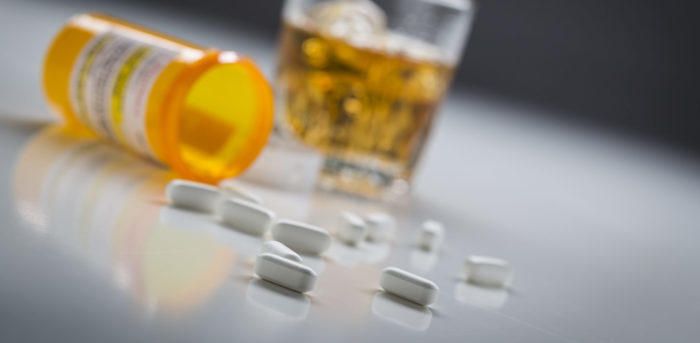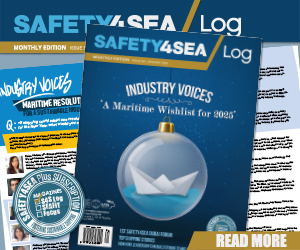Any level of alcohol consumption or illegal drugs by crew members onboard has implications for the safety of the vessel, the crew and any passengers. Even small quantities of alcohol have been shown to sufficiently impair seafarer’s fitness for duty and increase the risk of accidents. As such, Regulation VIII/1, Code A-VIII/1 and B-VIII/1 of the STCW Convention, as amended in June 2010 (the Manila amendments), brought in new provisions on fitness for duty – alcohol limits.
- STCW Convention at a glance
- STCW Convention: Terms and Definitions
- Certificates needed for compliance with STCW
- How seafarers can get their STCW certificates
- STCW Convention: General requirements for officers
- STCW Convention: General requirements for ratings
- STCW: How to obtain a certificate of competency as Master
- STCW: How to obtain a certificate of competency as Chief Mate
- STCW: How to obtain a certificate of competency as Navigational Watch
- STCW certificates according to function and type of vessel
- Training issues under STCW: What you should know
- STCW: Certificates and documentary evidence needed onboard
- Alcohol and drug consumption onboard: Taking prevention measures
- STCW: Setting the hours of rest for watch personnel
The consumption of alcohol on board ship is being progressively phased out through strict regulations and screening. The majority of organizations enforce a non-alcohol policy on-board their ships while PSC Officers may carry out random alcohol tests on crew members.
The adverse effects on personal health and general safety on board are also compelling reasons for avoiding not only alcohol consumption but also drug abuse. A seafarer can expect little sympathy from their employer or the authorities if caught in possession of, or using, illegal substances.
Also, legislation with severe penalties, where drugs and alcohol are adjudged to have contributed to an accident, is being introduced worldwide on an increasing scale. Penalties imposed not only cover injuries to personnel and damage to property but also the enormous costs involved in preventing or cleaning-up damage to the environment. Reports from the United States National Transportation Safety Board quote numerous cases in which alcohol and other drug use has been a factor in aviation, rail, marine and highway accidents.
The amended 2010 STCW Convention requires administration should put in place adequate measures to prevent drug and alcohol abuse. There is also a mandatory requirement for the administration to establish a limit of not greater than 0.05% blood alcohol level (BAC) or 0.25 mg/l alcohol in the breath or a quantity of alcohol leading to such alcohol concentration for masters, officers and other seafarers while performing designated safety, security and marine environmental duties.
Guidelines in part B of the STCW Code on watch-keepers recommend seafarers should not consume any alcohol within four hours of going on watch.
Promoting Prevention
Any administration has the following responsibilities to protect the health and safety of people onboard:
- Health checks and medical examinations: ensuring checks for drug and alcohol abuse are included in the seafarers’ medical examination both on initial screening and during seafarers’ periodic medical checks.
- Training & education: provide the support, guidance and expertise to assist the development of schemes to prepare trainers, the application of training and the education of seafarers and shore workers in the effects, symptoms and results of drug and alcohol abuse.
- Promoting and raising the profile of prevention: coordinate accident reports and provide risk assessment data and other information that may be used by the country’s maritime industry to raise the profile of the subject and to promote the dangers posed by drug and alcohol abuse.
- Setting safety limits: prescription of a maximum blood alcohol level for watchkeepers as a minimum safety standard and any other prohibitions on the consumption of drugs, including prescribed medications, or alcohol that can impair the ability of watchkeeping seafarers or those on board engaged in safety sensitive operations.
- Provision of rehabilitation services: provide rehabilitation services for those seafarers diagnosed as having or who have acknowledged a drug or alcohol abuse problem.
- Non-discrimination: develop and introduce legislation that ensures rehabilitated seafarers, following an individual’s successful completion of an approved treatment programme, are not discriminated against by employers.
- Declaring drug and alcohol abuse to be a medical condition: encourage those with drug and alcohol abuse problems to seek assistance thereby reducing health and safety risks to fellow seafarers on board ships.
- Focal point: to act as a focal point for industry and to express and share the national views/experiences gained from prevention programmes at international level
What masters should do
The responsibilities which the master is expected to fulfil with respect to alcohol and drug consumption onboard include:
- commitment to the programme,
- familiarity with the policy, programme and associated
- procedures,
- monitoring and providing feedback on the programme
- through the ship’s safety committee,
- monitoring the performance of ship’s officers and seafarers,
- identifying drug and alcohol abuse problems,
- carrying out disciplinary procedures,
- obtaining medical or specialist advice and dealing with
- emergency medical situations,
- executing testing procedures (where required),
- co-operating with foreign port authorities and ensuring
- conformance to national or foreign regulations, and
- monitoring and controlling consumption.
What an abuse policy statement should include
Any shipping company should have written an abuse policy, clarifying its position on the use of alcohol, illicit drugs and medications both on board and on shore. Namely, the policy should explain why the company has implemented an alcohol and drug programme and refer to prevention measures and consequences of policy violations.
More specifically, at a minimum, the policy statement should address:
- Rules concerning the consumption of alcohol on board ship.
- Restrictions concerning consumption of alcohol prior to coming on duty
- Use of medications which may interfere with work performance.
- Use of illicit drugs.
- Consequences of violating drug and alcohol use rules.
- Consequences of illicit drug possession or drug trafficking.
- Seafarers with drug and alcohol problems.
- Rehabilitation and re-employment.
- Alcohol and drug testing































































If the seafarers had already been addicted with Drugs and Alcohol, what would be the correct procedures in handling the problems?